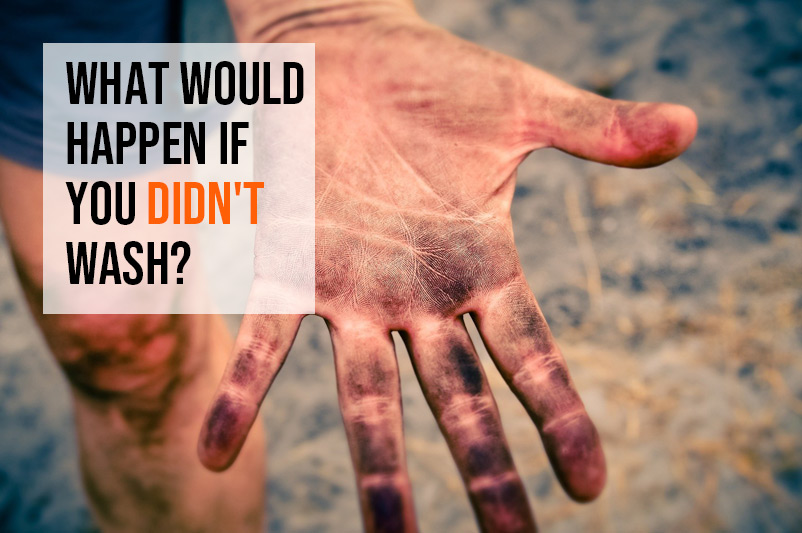How Often Should I Change My Bath Towel?

How Often Should I Change My Bath Towel?
There has long been a debate among laundry experts regarding how frequently people should change or clean their bathroom towels. While some believe that it's perfectly healthy to change their towels once a month, there are others who refuse to use anything other than a freshly cleaned towel each time they use a shower or bath. While there's plenty of disagreement about how many times you should use a towel before cleaning it, the truth probably lies somewhere in the middle of these two extremes.
Why Wash Towels?
Bath towels are usually used to dry somebody who is clean, most often immediately after a bath or shower. This is in contrast to gym towels or beach towels, which inevitably get dirty during use. Why would we need to wash bathroom towels regularly when they're only being used by clean people? The problem isn't so much the person as the contents of the water. While shower water will generally be clean, bathwater is full of whatever you've washed away from your body, even if that material is now dissolved.
Any water that is absorbed by the towel will leave it moist, remaining slightly damp even after it feels dry to the touch. The damp towel then provides a perfect environment for bacteria to multiply, potentially giving a home to mold, E. coli and other harmful germs. While drying your towels quickly and thoroughly will reduce this growth, whether it's outside or on a heated towel rail, the only way to truly keep your towels hygienic in the long term is to clean them properly. As a general rule, the thicker and more comfortable a towel is, the more moisture it will absorb and the longer it will take to dry. On the other hand, thinner towels such as those you take to the gym or beach should dry quite quickly.
How Often to Wash
There's not a single answer that can be applied to all situations but as a general guide, you should be looking to clean your towels after three or four uses. It's best to consider your hygiene schedule; if you're showering or bathing every day and you're the only person using your towel, you'll want to switch towels twice per week. Odour, even if it isn't particularly strong, is a sure sign that microbes are growing in your towels and that they should be cleaned as soon as possible. For flannels, which are more likely to be completely soaked during your hygiene routine, this should be increased, possibly even doubled, cleaning them every couple of days.
How often you clean your towels is also influenced by circumstances within your property. Warmth encourages bacteria growth, so this a bigger problem during the summer months (and if you keep your bathroom warm throughout the rest of the year). If your bathroom isn't properly ventilated, the humidity can also result in more rapid growth. Gym towels are often stuffed into bags while still damp with water (and sweat), where they usually stay for hours, so it's advisable to use a clean towel for every visit. It's also best to give younger children their own towel and to clean it frequently, as they aren't always the most dependable when it comes to personal hygiene.
If you or a housemate are ill, it's important to ensure that you're each using your own towel and it's helpful to clean your towels more frequently. Cross contamination via towels is all too easy, especially wet towels which provide a perfect environment for bacteria to survive and multiply. A dirty towel can transfer so many germs that they negate the benefits of cleaning yourself in the first place. While a mildly dirty towel is unlikely to cause a severe health issue, the bacteria it carries can exacerbate the effects of eczema, spread warts or encourage the transfer of nail fungus.
You can also improve the hygiene of your towels by ensuring they dry thoroughly after use, whether this is by hanging them on a towel rail or pegging them outside to dry on your washing line. You shouldn't dry towels on a radiator, however, as the heat and lack of air circulation can spread harmful germs through the air; an article explaining the potential risks of drying items on a radiator can be found here. Leaving your towels in a heap on the floor won't allow them to dry properly, so it's always best to find a better spot. Proper ventilation will also help reduce the growth of bacteria during drying, whether it's an extractor fan or simply opening a window.
Cleaning Temperature
Most of the time, you'll probably be encouraged to turn down the temperature of your washing machine to save energy. Lowering the temperature can save money and protects the material and colour of more delicate items of clothing. However, it's recommended that you clean using water of at least 60oC (or 140oF) as this is sufficient to kill the bacteria that they carry. Your washing machine may have a built-in mode for sanitizing clothes, which is ideal for eliminating germs. Otherwise, be sure to run your washing machine at a high temperature or, if you clean your towels by hand, be sure the water is sufficiently hot. As an aside, it's best not to use fabric softener when you wash towels as it leaves a residue that reduces their absorbency.





